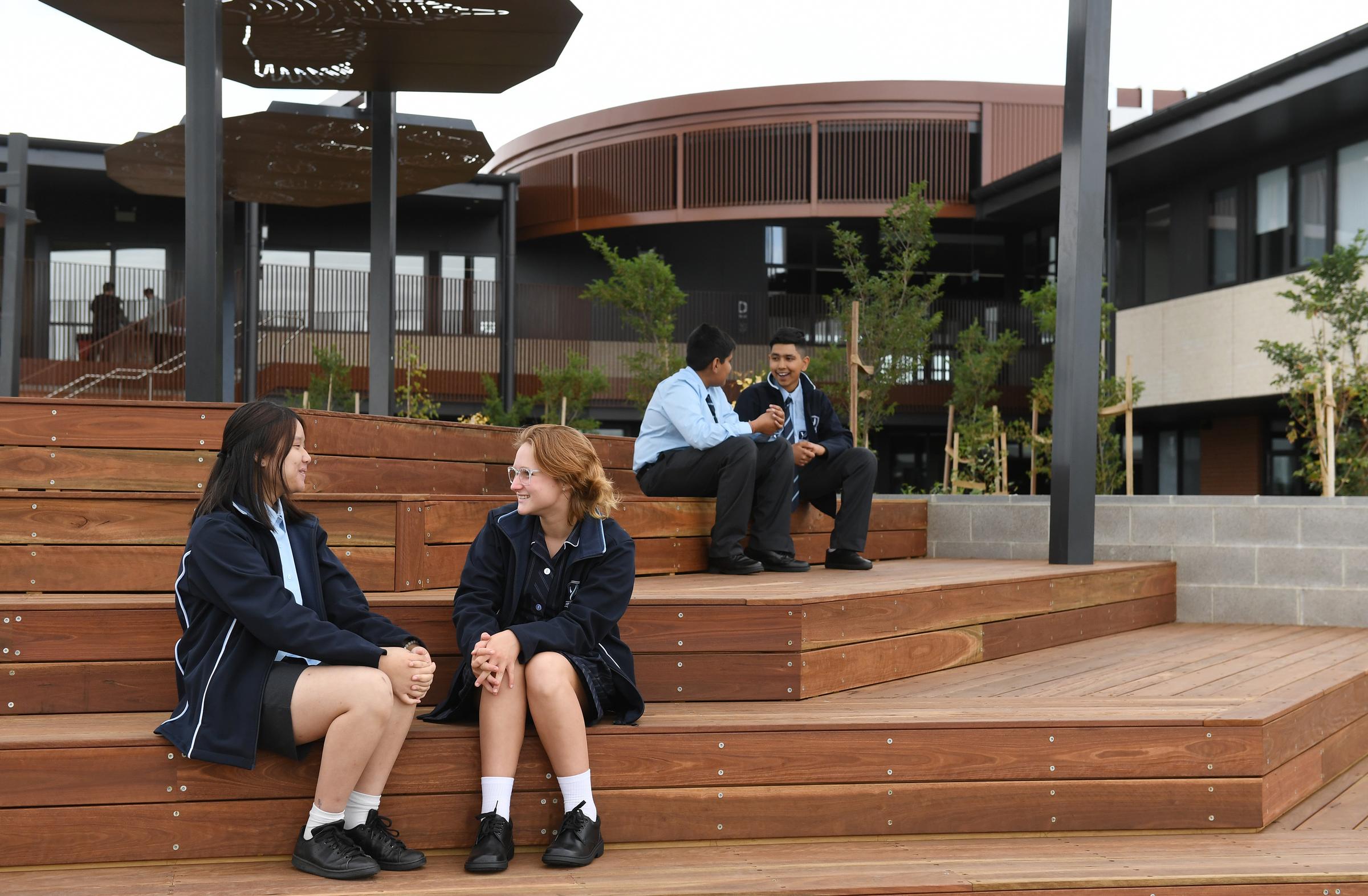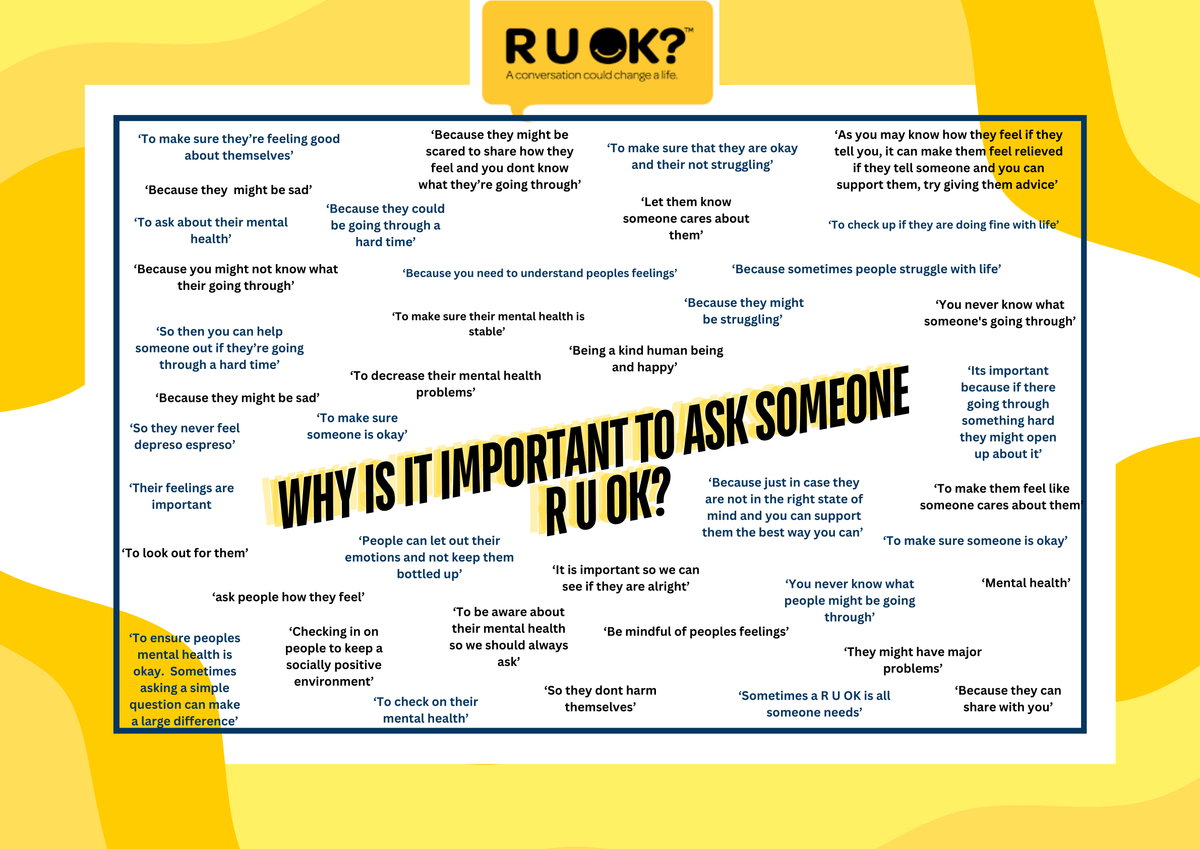Assistant Principal - School & Student Operations
Dina Becvinovski

Assistant Principal - School & Student Operations
Dina Becvinovski
The Resilience Project
Emotional Literacy
This term in class, we explored emotional literacy by reflecting on different types of positive and negative emotions and how they may physically affect our bodies when we are experiencing those emotions.
Working on our emotional literacy gives us opportunities to develop our ability to understand and express different emotions. When we improve our emotional literacy, we can work towards recognising our own feelings and our ability to manage them. This allows us to cope with different life situations, such as managing conflict, making friends, coping in difficult situations, and being resilient when dealing with change.
Whole Family Activity:
Feelings Charades
Family Habit Builder:
R U OK? Day - Thursday 12 September
R U OK? Day reminds us all that every day is the day to ask, ‘Are you OK?’ and support those struggling with life's ups and downs. Thank you to all our students who enthusiastically participated in our R U OK? lunchtime activity. It was fantastic to see our students checking in on one another and show how we care for one another.
Students were asked 'Why is it important to ask the question R U OK? Students wrote their response on a post it note and made a R U OK? pledge board. They all wore their R U OK? bracelet with pride
Here are our shared responses for our Yarrabing community:


Dina Becvinovski
Assistant Principal